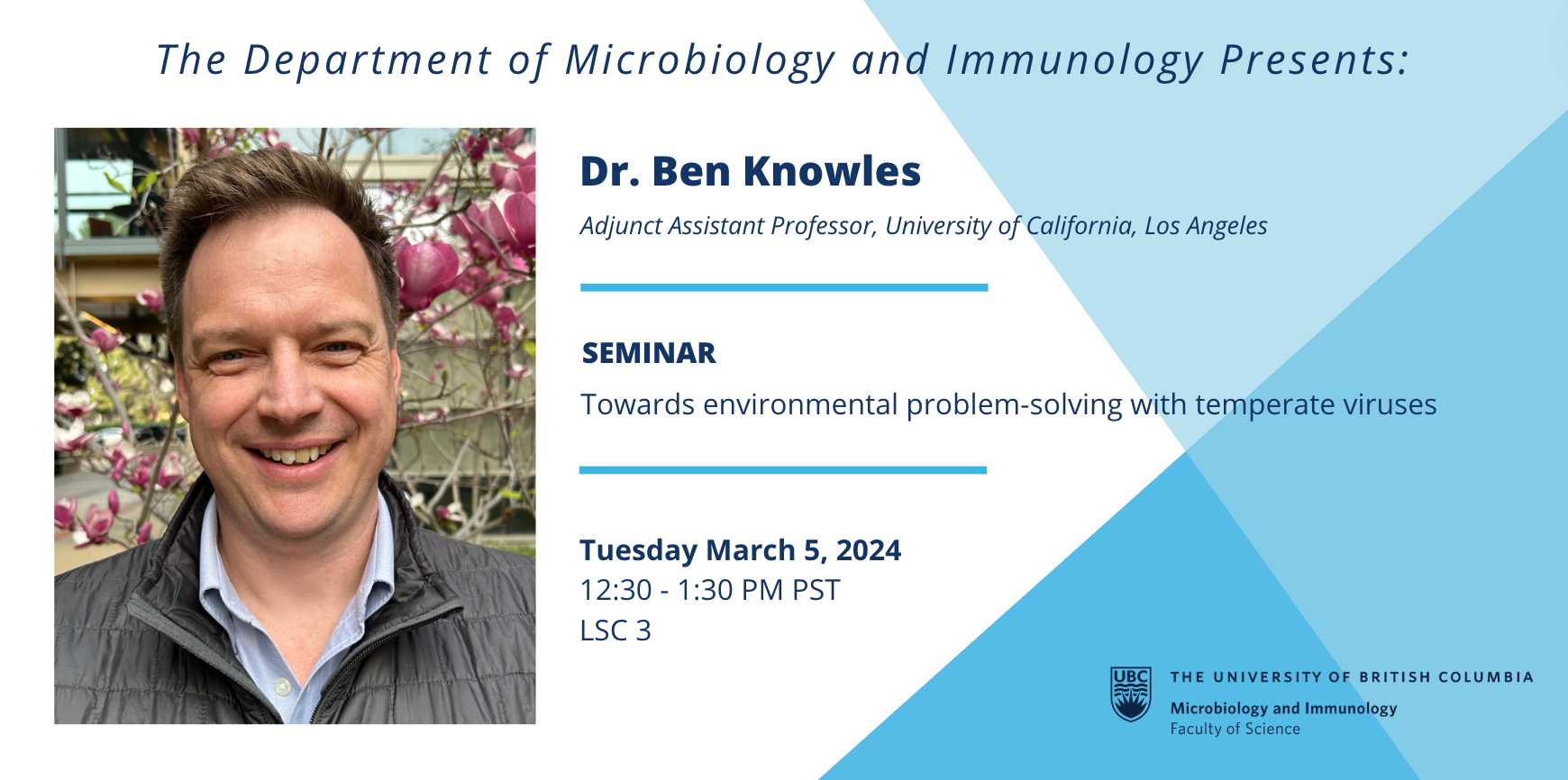
Seminar: Towards environmental problem-solving with temperate viruses
Abstract: Viruses are commonly viewed as molecular predators that lyse their microbial hosts upon infection. However, it is becoming increasingly clear that non-lethal temperate infection may be the norm. Because temperate infection is driven by host physiology, where viruses delay killing proliferating hosts and lyse stressed hosts, its prevalence opens the possibility of engineering infection outcomes to solve environmental problems by tweaking host metabolic states. My prior work characterising how ecosystems are degraded by microbial overgrowth with the rise of temperate infection and nutrient enrichment. Building on this, my lab is now increasingly focusing on using our current and emerging understanding of temperate viruses to solve socioeconomically consequential environmental problems. In my talk, I will describe our current work to (i) understand and model the ‘rules of infection’ to guide our problem-solving program, (ii) characterise the role of viral metabolic genes in coral reef decline and possible conservation strategies to combat their effect, (iii) harness temperate infection in algal biofuel production, and (iv) describe changes in the lifestyle and immunogenicity of the human gut viral community from pre-historic to modern times and potential physiological remediation. Finally, I will explore affinities between my research program with MBIM/UBC expertise and facilities, education and mentoring, and equity, diversity, and inclusion efforts.
LSC 3 (Life Sciences Institute - 2350 Health Sciences Mall) MBIM itsupport@microbiology.ubc.ca America/Vancouver public
Seminar: Towards environmental problem-solving with temperate viruses
Abstract: Viruses are commonly viewed as molecular predators that lyse their microbial hosts upon infection. However, it is becoming increasingly clear that non-lethal temperate infection may be the norm. Because temperate infection is driven by host physiology, where viruses delay killing proliferating hosts and lyse stressed hosts, its prevalence opens the possibility of engineering infection outcomes to solve environmental problems by tweaking host metabolic states. My prior work characterising how ecosystems are degraded by microbial overgrowth with the rise of temperate infection and nutrient enrichment. Building on this, my lab is now increasingly focusing on using our current and emerging understanding of temperate viruses to solve socioeconomically consequential environmental problems. In my talk, I will describe our current work to (i) understand and model the ‘rules of infection’ to guide our problem-solving program, (ii) characterise the role of viral metabolic genes in coral reef decline and possible conservation strategies to combat their effect, (iii) harness temperate infection in algal biofuel production, and (iv) describe changes in the lifestyle and immunogenicity of the human gut viral community from pre-historic to modern times and potential physiological remediation. Finally, I will explore affinities between my research program with MBIM/UBC expertise and facilities, education and mentoring, and equity, diversity, and inclusion efforts.

